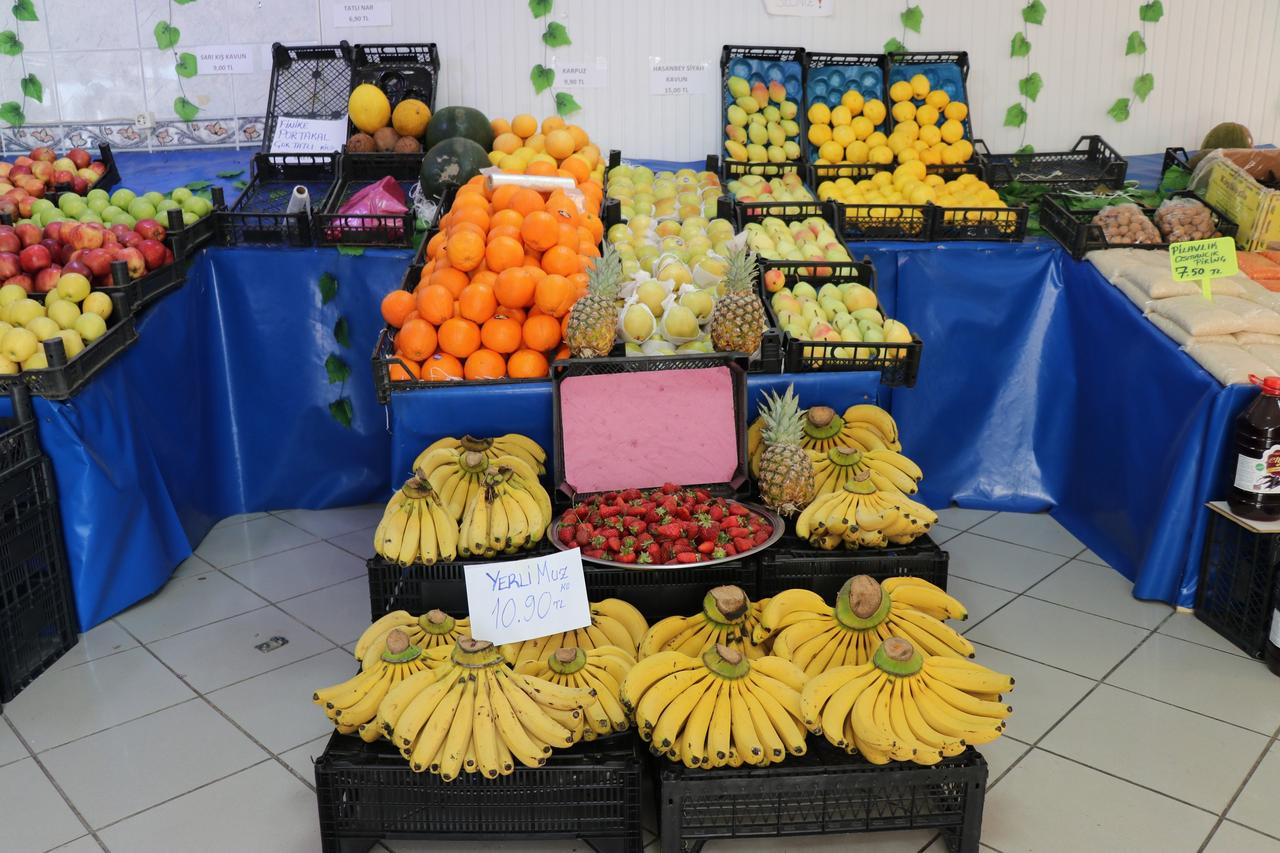
Fruit prices in Türkiye are expected to surge in the coming months as the country faces a significant decline in agricultural output, triggered by the most severe frost of the decade. Early projections from the Turkish Statistical Institute (TurkStat) forecast a 24.4% year-over-year drop in fruit production, bringing total yield down to approximately 21.4 million tons in 2025.
The drop comes amid broader declines in cereals, vegetables, and industrial crops and is widely attributed to a severe frost event in April—the worst of the decade.
In early April, an abrupt weather shift that caused temperatures to drop by 10 degrees Celsius (18 degrees Fahrenheit) across Türkiye resulted in severe damage to the harvest. The frost particularly impacted fruit crops, with apricots, most notably, alongside grapes, figs, apples, plums, cherries, sour cherries, hazelnuts, walnuts, almonds, peaches, and persimmons being affected.
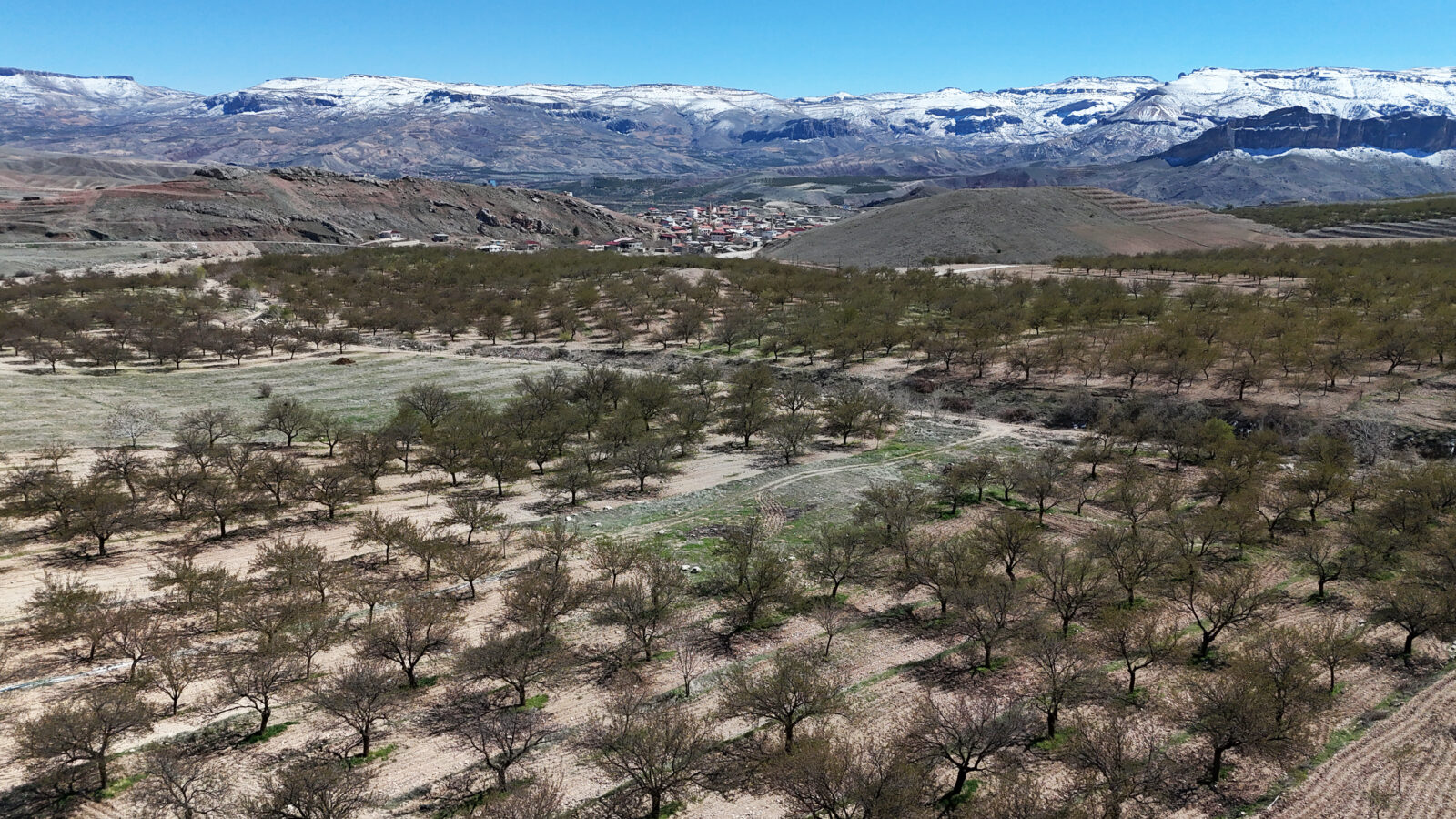
Based on data compiled by the Agriculture and Forestry Ministry, the first forecast of the year anticipates a contraction in cereals, vegetables, and especially fruit, beverage, and spice crops.
Apple yields are forecast to decline by 38.7%, peach by 32.1%, nectarine by 35.5%, and cherry by a staggering 55.7%. Strawberry and grape production are also set to fall by 4% and 18.6%, respectively.
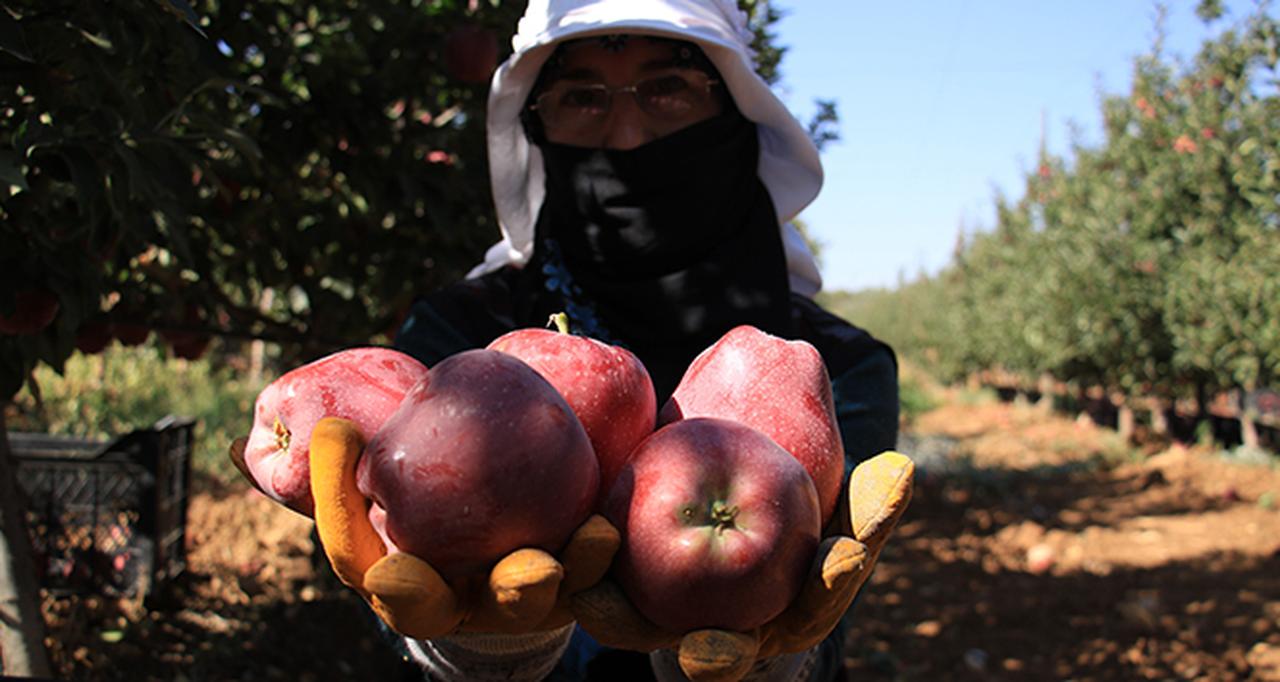
In citrus fruits, orange output is expected to drop by 12.4% and lemon by 20.9%, although mandarin production may see a modest increase of 0.6%. Among nut varieties, hazelnut and walnut outputs are forecast to fall by around 27.5% and 27.7%, while pistachio yields are projected to plummet by more than half. Olive production is set to decline by 40%, continuing a volatile trend observed in previous seasons. Banana output, however, is expected to remain stable.
Cereals and other field crops—excluding forage—are projected to decline by 5.3%, with total production expected at 71.4 million tons. Within the grain segment, total output is forecast to fall by 4.1% to 37.4 million tons. Wheat production is set to shrink by 5.8% to 19.6 million tons, barley by 8% to 7.5 million tons, and oats by 23.1% to 300,000 tons. Corn stands out as an exception, with production expected to rise 4.9% to 8.5 million tons.
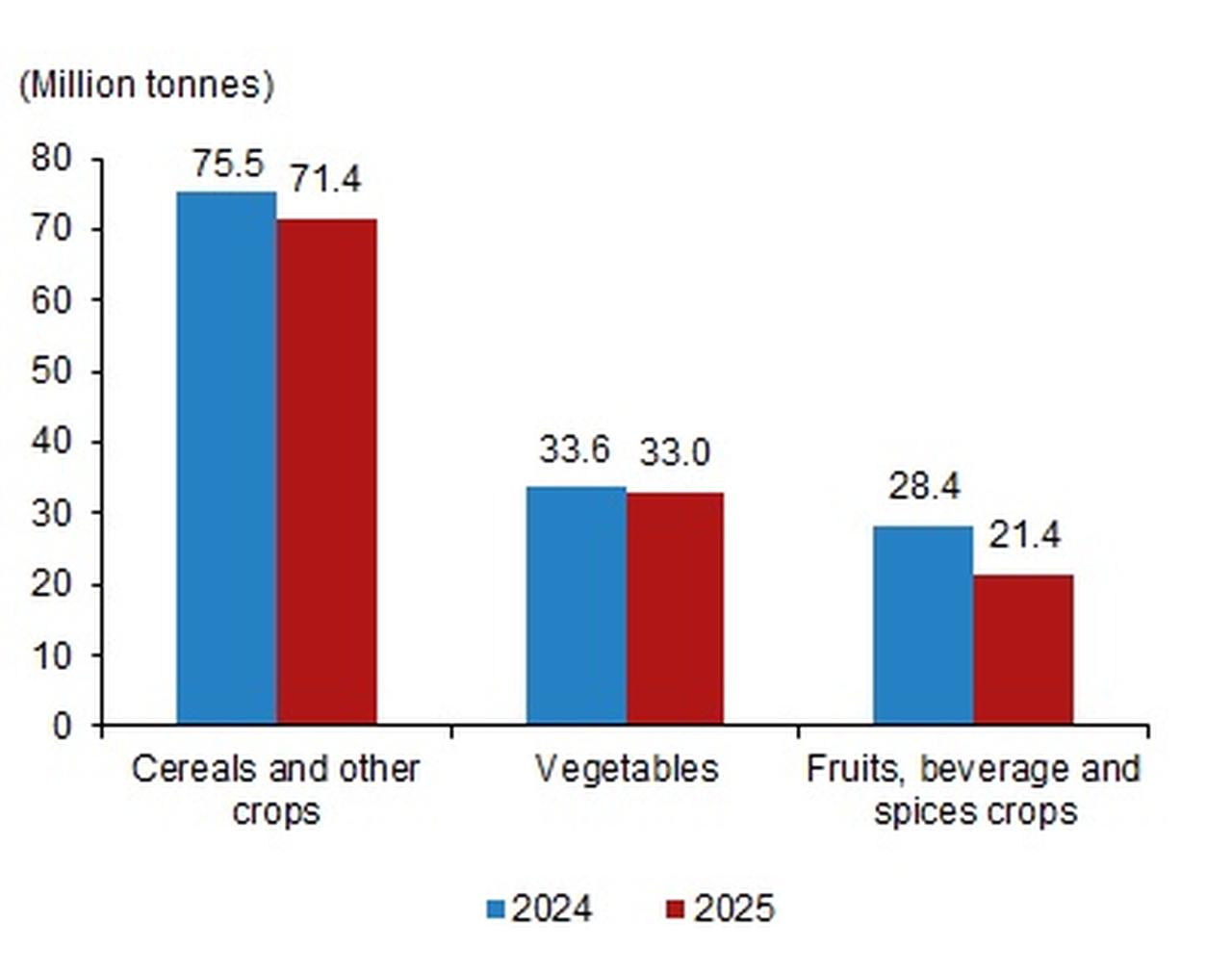
Legume yields, including chickpeas (605,000 tons), dry beans (283,000 tons), and red lentils (340,000 tons), are projected to remain largely unchanged from the previous year.
Vegetable production is expected to see only a slight drop of 1.7%, amounting to about 33 million tons. Some crops, such as watermelon, eggplant, and onion, are forecast to rise modestly by 3.5%, 3.3%, and 2.6%, respectively. However, the production of tomatoes—one of Türkiye’s largest vegetable exports—is expected to decline by 5.7%. Other crops such as pepper (salca type) and green beans may also fall by 3.7% and 4.5%, respectively.
Among oilseeds, soybean production is expected to decline by 11.1% to 160,000 tons, while sunflower seed output is forecast to rise by 4.8% to 2.3 million tons. Sugar beet production is set to fall by 6.5% to approximately 21.5 million tons, marking a continued shift in Türkiye’s industrial crop dynamics.
The Central Bank of the Republic of Türkiye (CBRT) has raised its food inflation forecast for 2025 to 26.5% in its second Inflation Report, up from previous estimates, citing the widespread frost event in April. The frost, which affected much of the country, has significantly increased upward risks for prices of fresh fruits and vegetables, particularly fruit. The Bank maintained its forecast for 2026 at 13.5%, noting that inflation expectations remain elevated and above its disinflation path.
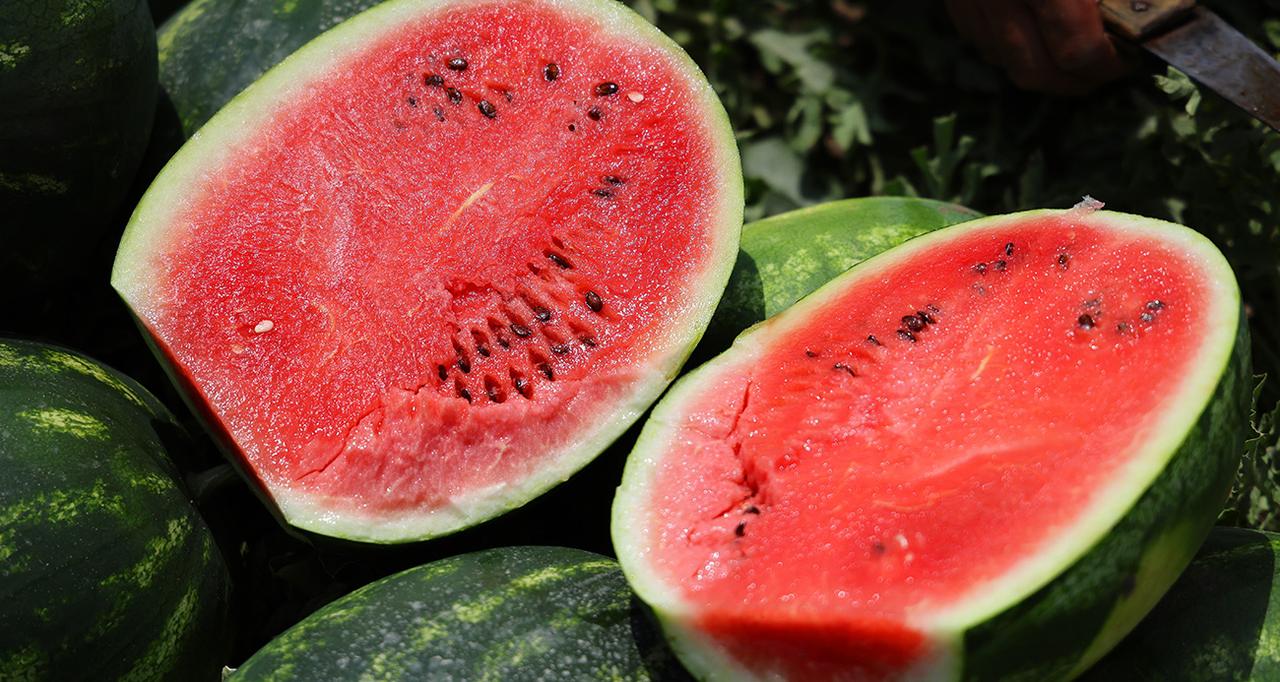
Speaking during the release of the year’s second Inflation Report, Governor Fatih Karahan acknowledged that the frost had stalled recent improvements in inflation expectations and warned of continued pressures on food prices in the near term.
Food inflation in Türkiye continued to ease in April, though at a slower pace, falling to 36.09% year-over-year despite a monthly increase of 2.01%.